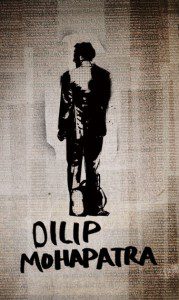Index relies entirely on the support of donors and readers to do its work.
Help us keep amplifying censored voices today.
 Russian guerrilla artists from the Voina art collective are facing criminal prosecution for their controversial brand of political street art. Nick Sturdee reports on the widespread frustration that has fostered the movement
Russian guerrilla artists from the Voina art collective are facing criminal prosecution for their controversial brand of political street art. Nick Sturdee reports on the widespread frustration that has fostered the movement
(more…)
 MURDERED 9 NOVEMBER 2004
MURDERED 9 NOVEMBER 2004
Dilip Mohapatra Editor, “Aji Kagoj” — Bhagirathipur, India
Join us in demanding justice for Dilip Mohapatra, 45, who disappeared on 8 November 2004. His body was discovered the next day on the side of a highway in the eastern state of Orissa, with a fatal head wound and his hands and legs bound. Preliminary reports suggested he may have been killed for publishing exposés on the timber and narcotics mafia in the region in his paper “Aji Kagoj”, but the motive was never confirmed.
The International Federation of Journalists (IFJ) believed his murder to be the 100th journalist killed worldwide in 2004. “But these deaths are not just about numbers: we must remember that for every journalist killed there are grieving family members, friends and colleagues for whom these murders will leave a lifelong hole,” said IFJ. With seven unsolved media murders this decade and no apparent political will to prosecute the cases, India retained its spot as number 13 on the Committee to Protect Journalists’ Impunity Index.
International Day to End Impunity is on 23 November. Until that date, we will reveal a story each day of a journalist, writer or free expression advocate who was killed in the line of duty.
Lord Justice Leveson has rejected a call from the Crown Prosecution Service and Metropolitan Police in which they asked to review evidence submitted to the inquiry and decide what information can be made public or shared with participants.
The joint submission made last month by the Met and the CPS expressed concerns that an individual who is later charged may claim the Inquiry breached their right to a fair trial, as evidence will be heard before criminal trials have occurred. As a result, the submission requested suggests that any document that the Inquiry wishes to disclose to other core participants or make public should first be shown to a nominated police officer, who would then be able to veto any information that might prejudice criminal proceedings.
Neil Garnham QC, representing the Met and CPS, told the Inquiry at a public hearing on 31 October that he was concerned not only that the Inquiry may risk prejudicing the criminal investigation, but also that, in reporting the Inquiry, the media might “go beyond fair reporting” and damage proceedings.
Leveson said he did not accept these concerns, stating in today’s ruling that adhering to the Met and CPS’s requests would “substantially increase the work that has to be put into adducing evidence before me” and may potentially “damage both the public perception of the Inquiry and its timeliness.” Leveson suggested he himself will decide what information might pose a risk to the criminal investigation.
The first hearing of the Inquiry will take place on 14 November, with victims’ evidence to be heard from 21 November. The Inquiry is likely to hear evidence from witnesses until February 2012.
Follow Index on Censorship’s coverage of the Leveson Inquiry on Twitter – @IndexLeveson.
Interesting news from Paris, where motorsport boss turned privacy campaigner Max Mosley has had mixed results in his cases against News Group and News of the World reporter Neville Thurlbeck.
Unsurprisingly, Mosley won his privacy case against the publishers of the (dear, departed) News of the World. France is well known for the primacy given to privacy by its courts, so if the Mosley story (quick recap: video of him indulging in S&M games with prostitutes), was ruled to be a breach of privacy in London, it was almost certain to be a breach of privacy in Paris.
Interestingly, however, Mosley lost his case against NotW reporter Neville Thurlbeck (he of the infamous “for Neville” email at the heart of the News of the World phonehacking scandal) on the grounds that Thurlbeck could not be held responsible for the distribution of the newspaper in France.
So who exactly would be liable for a libel suit in this case? The publisher? The distributor? The lorry driver?
For some background on the case, read Ian Burrell (may contain traces of me).